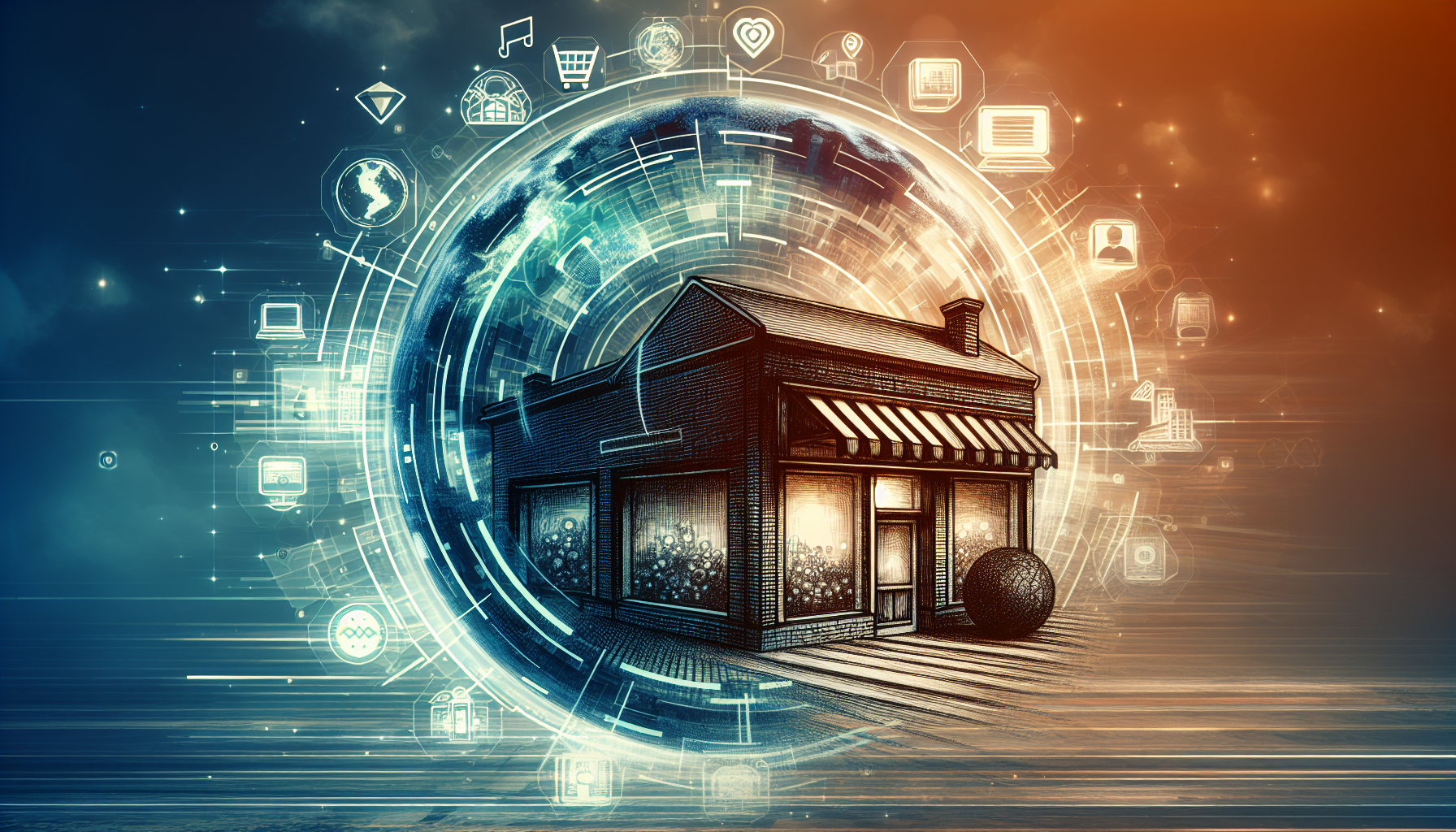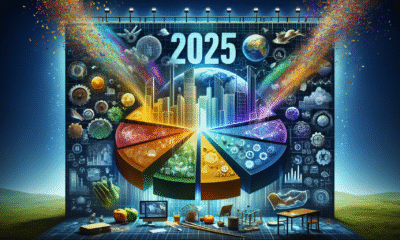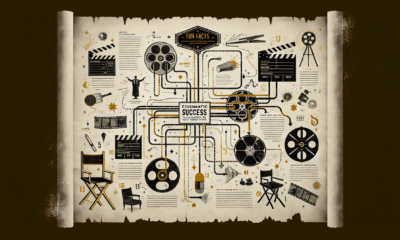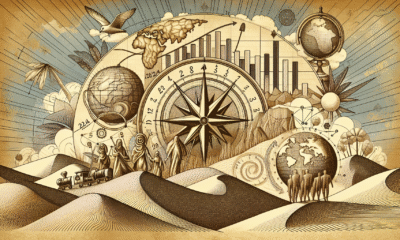Business
Disrupting Tradition: Exploring Innovative Business Models in the 21st Century

In today’s fast-paced world, traditional business practices are being flipped on their heads. Innovative business models are taking the front seat, promoting flexibility, efficiency, and customer-centric approaches like never before. If you’re curious about how these new models are reshaping our economy and day-to-day lives, you’re in the right place!
A Quick Look at the Shifting Landscape
The digital era has revolutionized how businesses operate. From the rise of e-commerce to the gig economy, innovation is the name of the game. According to a Pew Research study on new business trends, a significant number of consumers are adapting to these changes all the time.
Understanding the Innovative Model
So, what do we mean by “innovative business models”? They can include anything from subscription services to on-demand platforms, sharing economies, and decentralized businesses. These models are often designed to leverage technology, engage users, and create unique experiences. Let’s dive into some of the most fascinating disruptors shaking things up.
Subscription Services: Pay-as-You-Go Lifestyle
Subscription models are no longer just for magazines or gym memberships. This way of doing business has expanded across many industries. From streaming services like Netflix to subscription boxes like Dollar Shave Club, the idea is simple yet effective: customers pay a recurring fee for ongoing access to products or services.
Why Subscription?
- Convenience is Key: Who doesn’t love having things delivered right to their door?
- Cost-Effective: Many subscriptions are cheaper than buying items outright.
- Flexibility: Customers can easily modify or cancel their subscriptions.
For more on the impact of subscription models, check out our article on trends in consumer behavior.
The Gig Economy: Embrace the Freelance Life
Remember the days of nine-to-five? While still common, it’s becoming increasingly outdated. The gig economy allows individuals to take control of their work lives by joining platforms like Uber, TaskRabbit, or Fiverr.
Benefits of Gig Work
- Flexibility: Work when and where you want.
- Diverse Opportunities: From driving to graphic design, you can explore multiple gigs.
- Independence: Be your own boss, which is a significant draw for many.
A Shifting Mindset
According to a Statista survey from 2022, nearly 36% of Americans have participated in the gig economy—this number continues to grow as more people see its benefits over traditional employment.
The Sharing Economy: A Collaborative Future
The sharing economy takes collaboration to a whole new level. Think Airbnb or Zipcar. These platforms allow people to monetize their underutilized assets. Instead of traditional ownership models, you share access to goods and services.
Why Are We Sharing?
- Cost Savings: Renting can often be more affordable than buying.
- Sustainability: Sharing reduces waste and encourages efficient use.
- Community: Build connections with people around you.
Social Enterprises: Profits with Purpose
While traditional businesses focus solely on profit, social enterprises take a more holistic approach. These companies address social issues while still being economically viable. Think TOMS or Warby Parker, where every purchase contributes to a greater cause.
The Impact of Social Entrepreneurship
- Fulfillment: Consumers today are often looking for meaning and purpose.
- Brand Loyalty: People are willing to pay more for brands aligned with their values.
- Positive Change: These enterprises can create real social transformation.
Tech-Driven Models: The Future is Now
With technology rapidly evolving, it’s no surprise that many innovative business models are tech-driven. Artificial Intelligence (AI), machine learning, and blockchain are disrupting traditional methods, affecting everything from supply chains to customer service.
Key Tech Innovations
- Automation: Increases efficiency and reduces costs.
- Data-Driven Decisions: Companies can analyze consumer behavior and adapt accordingly.
- Blockchain: Enhances transparency, especially in industries like finance and supply chain.
Adapting to Change: What’s Next?
So how can businesses adapt to these innovative trends? Here are some actionable steps:
- Be Open to Experimentation: Don’t be afraid to test new models.
- Focus on Customer Experience: Understand your audience’s needs and desires.
- Collaborate: Partnerships can unlock new opportunities and markets.
Incorporating these strategies can help ensure your business stays relevant in this ever-changing landscape.
Conclusion: Embrace the Disruption
The 21st century is all about innovation and adaptability. As we move forward, traditional business practices must evolve to meet the demands of a modern world. Whether it’s through subscription services, gig opportunities, or socially responsible enterprises, the future of business is not just about profit—it’s about changing lives.
Innovative business models are not just a trend; they’re the lifeblood of tomorrow’s economy. If you’re curious about how to navigate these changes or want to explore more topics related to modern business practices, check out our other articles at News Daybreak.
Embracing disruption, after all, might just be the key to success in this new era!
-

 News22 hours ago
News22 hours agoTeenage US Citizen Records Brutal Arrest by Immigration Agents Who Told Him, ‘You Have No Rights’
-
News21 hours ago
Maltese Police Officers Participate in Operation in the Black Sea
-

 Business22 hours ago
Business22 hours agoNavigating the Economic Landscape: Key Insights from Today’s Business Headlines
-

 News20 hours ago
News20 hours ago“Honoring Ukraine: A Tribute” (July 26, 2025) — dynamo.kiev.ua
-

 Business19 hours ago
Business19 hours agoThe Top 10 Business Opportunities to Watch in 2025
-

 Entertainment22 hours ago
Entertainment22 hours agoCinematic Success: Fun Facts About Movies That Shaped the Film Industry
-

 Business21 hours ago
Business21 hours agoNavigating the Shifting Sands: Key Global Economic Trends for 2024
-

 News19 hours ago
News19 hours agoEnviMin Showcases Vacaresti Natural Park to Her German Counterpart
